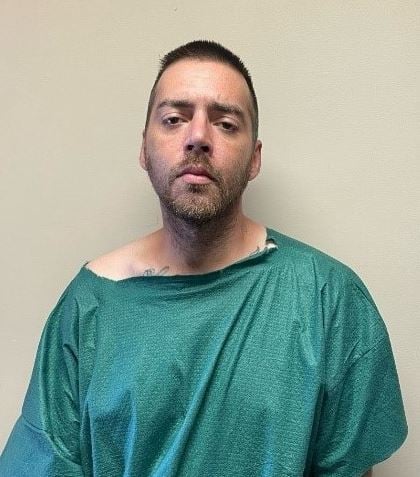Dems debate which proposal is best to tackle rural hospital crisis
Asked in September about her support for “Medicare for All,” Elizabeth Warren insisted at the third presidential debate that all Americans—even those in rural communities—could still seek treatment at their local hospitals under the universal healthcare plan.
“So let’s be clear about this. People will have access to all of their doctors, all of their nurses, their community hospitals, their rural hospitals,” the Massachusetts Democrat vowed.
A Pew Research Study published last year, showed that “getting to a hospital is a longer trip—both in distance and time—for people in rural areas.” The University of North Carolina has tracked some 160 rural hospital closures nationwide since 2005, including in Nevada, South Carolina, and Ohio, the host of Tuesday’s Democratic presidential debate. Across the country, in fact, at least 99 rural hospitals have shut down since 2010.
Trending News
After the Nye County Regional Medical Center was shuttered without warning in 2015, Nevadans in towns like Tonopah were left hundreds of miles from the nearest hospital.
“They shut the doors and that was it,” Elaine Minges, a Tonopah resident, recalled earlier this year.
Minges’ husband, Curt, suffered from a serious complication from diabetes some time later. The situation required prompt medical attention, but with the local hospital closed, none was to be found.
“That particular night, the helicopter was 45 minutes out before they could get to the airport, and in that time, he went into cardiac arrest,” Elaine Minges said.
When Fairfield Memorial Hospital in South Carolina closed last year, residents in parts of Fairfield County were left with a 45-minute drive from their nearest hospital.
“It doesn’t matter what kind of health condition you have, whether it’s a stroke, or a heart attack, or a car accident,” community health organizer Anton Gunn told CBS News. “It’s hard for any community, particularly in a rural community like that to survive.”
Gunn, who also worked for the Department of Health and Human Services and helped implement the Affordable Care Act, says that prevention is the pertinent to any substantive public health conversation.
“I’ve known plenty of people who’ve had coverage for years and still have died sicker and quicker than they should have because we haven’t focused on a prevention framework,” said Gunn. “It’s not just looking at providing people insurance coverage but how do we help people to live healthy in their homes [and] in their communities.”
In the final years of Nye County’s hospital, an investigation by The Dallas Morning News found records of mismanagement and regulatory neglect. Behind rural hospital closures in South Carolina, local experts cite failing industry, diminishing populations, and poverty as some of the key factors.
But experts and candidates diverge on whether universal healthcare proposals—from Bernie Sanders’ proposed Medicare for All, which would eliminate most private insurance in favor of a government-run system, to more modest efforts like giving Americans the option of choosing publicly-funded insurance — could drive America’s remaining rural hospitals into the red.
“Until there’s more details on these Medicare for All proposals, it’s hard to say how that would impact,” says Alan Morgan, CEO of the National Rural Health Association (NRHA). Though the NRHA has not joined other industry groups in lobbying against Medicare for All, Morgan is skeptical of the current single-payer proposals.
“If they pushed it forward just as it currently is, no I can’t imagine how that would work and I can’t imagine you wouldn’t see more rural hospitals closing,” says Morgan, adding that “the key” for rural hospitals is determining Medicare’s reimbursement rates.
One study, funded by industry critics of Medicare for All, warned in August that a public option risked shuttering 55 percent of rural hospitals even if only a portion of patients fled “higher-paying commercial plans.”
This possible risk to rural hospitals has been highlighted by candidates like John Delaney and Joe Biden. “Under the Biden Plan, which preserves individuals’ ability to choose private insurance, these hospitals won’t be threatened by having to get by on low Medicare reimbursement rates for all,” the former vice president’s campaign argues.
But several candidates, from Medicare for All proponents like Elizabeth Warren to public option boosters like Pete Buttigieg, have also explicitly vowed to increase reimbursement rates for rural hospitals.
They have also rallied behind creating new designations for rural hospitals with enhanced Medicare reimbursement. “Rural emergency medical centers” or “community outpatient hospitals,” could allow for rural healthcare facilities to transition into more advanced “urgent care” facilities, while stopping short of full-fledged hospitals.
In a House hearing earlier this year, a Congressional Budget Office researcher estimated rural hospitals could benefit from a single-payer system.
“Many rural hospitals are in, they’re called critical access hospitals, and they receive higher payments than would be otherwise provided under Medicare,” Jessica Banthin testified in May. “They often treat a lot of public pay patients, as well as patients who are uninsured. It is possible under a single-payer that some of those rural hospitals would be better off.”
Medicare for All proponents argue that savings from a reduced administrative burden and a revenue boost from a surge of patients could also buoy rural healthcare. A health assessment commissioned this year in Nevada found that even insured patients avoided seeking care, concerned with cost or confused with what services their plan covered.
“For starters, you’re dealing with really low volume,” Dr. John Packham, an associate dean researching rural healthcare at the University of Nevada Reno, told CBS News. “Some of the hospitals that I work with, literally have two or three inpatients a day but you nonetheless have to staff it for nursing 24/7. You have to have lab and radiology available.”
But both Packham and Morgan agree that some rural communities may never have the volume of patients to sustain full-fledged hospitals.
“As a nation, we’re paying these rural hospitals for volume and they’re just never going to have volume,” said Morgan. “We need to start paying them to keep their communities healthy.”
Of the twelve Democratic candidates on the debate stage Tuesday in Ohio, at least six of the presidential hopefuls — Joe Biden, Pete Buttigieg, Julián Castro, Amy Klobuchar, Bernie Sanders, and Elizabeth Warren — have outlined specific written plans to tackle health outcomes for rural patients.
To address rural America’s shortage of healthcare workers, most candidates have pledged to subsidize and incentivize medical professionals through programs like the National Health Service Corps and the Public Service Loan Forgiveness Program.
Both Klobuchar and Buttigieg’s plans also explicitly call to expand the “Conrad 30” program, which allows immigrant doctors practicing in underserved areas to remain in the country.
And nearly every candidate has floated ideas to invest and expand “telehealth” options or “telemedicine,” essentially doctor’s appointments via video conference.
Biden would expand the U.S. Department of Agriculture’s grant funding to emphasize telehealth “for mental health and specialty care.” Buttigieg calls for doubling funding to the Federal Communications Commission’s “Rural Health Care Program” subsidies.
Kellye McKenzie, a South Carolina-based public health practitioner, says that it’s important for candidates to explore the power of telehealth because of the impact it can have on rural communities in places like schools.
“You can’t talk about rural health in 2019 and not talk about what a game-changer telehealth would be in the conversation,” said McKenzie. “Mental health issues are huge and the reality that these services aren’t in schools however could be through telehealth, to me is incredibly exciting.”
Warren’s plan promises to set aside a $25 billion “capital fund” for improving care in these communities, listing possible projects like building a new “Rural Health Clinic” or “improving transportation to the nearest hospital.”
CBS News spoke with multiple experts who cited that transportation and other social economic factors are vital components of a prevention-focused community framework that is pertinent to any healthcare discussion.
Biden is the only candidate to specifically endorse the NRHA-backed “Save Rural Hospitals Act” in his platform, though some ideas from the measure appear in many of the candidates’ plans. And Buttigieg calls for the passage of the “Rural MOMS Act” in his plan, which would direct funding towards maternal health in rural communities.
But for Russell Pillers, a consultant working in Nye County in the wake of the hospital closure and a self-described conservative, even proposals he favors like telemedicine are far from the “silver bullet” to Tonopah’s healthcare crisis.
“You’re trying to be really creative and we’re nibbling around the edge of the main issues to try to find any way we can make some progress,” Pillers tells CBS News. “But the big issues to me is really that relationship between an insurance company, in-network providers, out-of-network providers, and patients.”
“At the core of this, not to be too hyperbolic here, people are dying. To me that puts politics out the window.”
Tim Perry contributed reporting to this story.





Leave a Reply